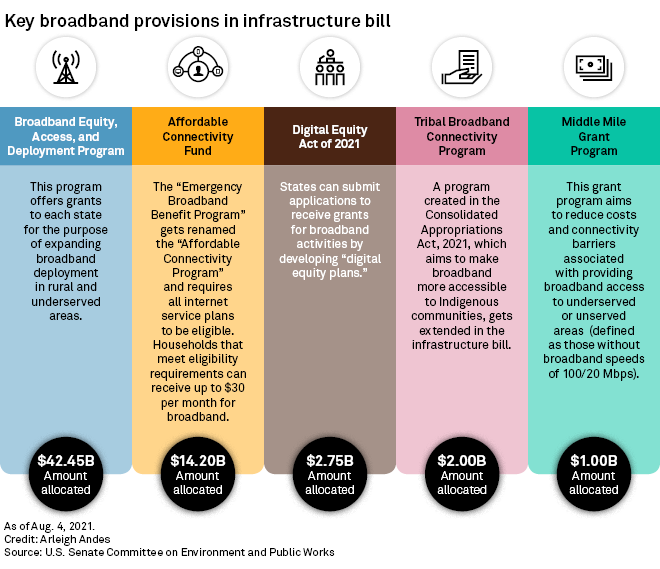Featured Topics
Featured Products
Events
S&P Global Offerings
Featured Topics
Featured Products
Events
S&P Global Offerings
Featured Topics
Featured Products
Events
S&P Global Offerings
Featured Topics
Featured Products
Events
Financial and Market intelligence
Fundamental & Alternative Datasets
Government & Defense
Professional Services
Banking & Capital Markets
Economy & Finance
Energy Transition & Sustainability
Technology & Innovation
Podcasts & Newsletters
Financial and Market intelligence
Fundamental & Alternative Datasets
Government & Defense
Professional Services
Banking & Capital Markets
Economy & Finance
Energy Transition & Sustainability
Technology & Innovation
Podcasts & Newsletters
14 Feb, 2022
More than 10 million households have now enrolled in a federal subsidy program aimed at making broadband more affordable, the White House said.
"In the 21st century, high-speed internet is a necessity, not a luxury," Vice President Kamala Harris said at an event celebrating the Affordable Connectivity Program. Funded by a $14.2 billion provision in the infrastructure act, ACP provides low-income households with a discount of up to $30 per month toward internet service and up to $75 per month for eligible households on tribal lands. Some households are also eligible for a device discount, up to $100.
"For so many of us, we use the internet as an essential and integrated part of our daily lives, and we take it for granted," Harris said. She cited data indicating more than 42 million people in America do not have access to reliable broadband access.
ACP is a successor to the Emergency Broadband Benefit Program, the Federal Communications Commission's pandemic-era internet subsidy plan that rolled out last May. EBBP ended at the end of 2021, securing over 9 million enrollees.

To market EBBP, the FCC worked with local officials to share information, administering virtual public presentations, agency officials previously said in an email to S&P Global Market Intelligence. The agency also relied on earned media, with appearances on popular morning talk shows that target various demographic groups.
Broadband policy authorities previously told Market Intelligence that the program started out strong but that more outreach efforts were needed to capture eligible households.
"We hope that the FCC's forthcoming community outreach partner grant program will get word about this program out to those who are eligible and not yet subscribed to the internet because of the cost," said Jenna Leventoff, senior policy counsel at public interest group Public Knowledge.
Nevertheless, experts say the 10 million milestone means the program has come a long way since its inception.
"That is 10 million households that don't have to choose to pay for food over broadband, and who are now able to take online classes, work from home, and stay connected with friends and family," Leventoff said.
"The number of Americans enrolling in the program comes as no surprise given that most people now consider broadband access as important to their livelihood as water and electricity," said Ernesto Falcon, senior counsel at the Electronic Frontier Foundation. "My hope is the FCC continues to expand the program and work with local governments, schools, and libraries to expand the assistance the federal government is providing in affording broadband."
According to the FCC, hundreds of internet service providers — including AT&T Inc., Verizon Communications Inc., Charter Communications Inc. and Comcast Corp. — have signed up to participate in ACP.

